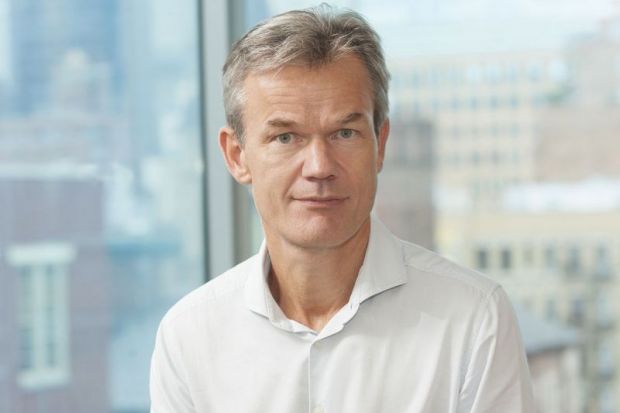With Pfizer, Moderna and Oxford-AstraZeneca creating Covid jabs in a matter of months – rather than the years normally required for vaccines – some have wondered whether other areas of medicine could enjoy similar paradigm shifts, leading to a host of game-changing interventions.
As the incoming chief executive and president of the Institute for Cancer Research (ICR), starting in September, Kristian Helin has certainly considered what lessons his own research field can take from the scientific successes of the pandemic – but is doubtful that the rapid Covid wins can be replicated so swiftly.
“The difference between this virus and cancer is that Covid is, by and large, one disease with a very well-understood genome; cancer is much more complex, it’s more like 400 types of disease for which you need to develop therapies,” said Professor Helin, speaking from the Memorial Sloan Kettering Cancer Center in New York where he is currently director of epigenetics research.
“Of course, I would always say we need more money for cancer research as there are many different types of work that could be funded, but it’s also more than 50 years since [Richard] Nixon declared war on cancer, which led to heavy investment in cancer research in the US,” reflected Professor Helin on the limits of what can be achieved by increased funding.
The Danish researcher, who for 15 years prior to moving to the US was the founding director of the University of Copenhagen’s Biotech and Innovation Centre, now home to 26 research groups, takes a different lesson from the pandemic.
“It shows how important fundamental research is – basic research developed over many years allowed vaccine researchers who weren’t working on coronavirus to address this critical issue,” said Professor Helin, who believes that cancer could also benefit in a similar way if new technologies from other fields can be applied.
“Fundamental biological research is not so different – scientists working on cancer and on different diseases could develop different technology to test and treat cancer,” he said.
The astonishing success of vaccine research over the past year should also not obscure the massive strides made by cancer research in recent years, he added. “We have achieved quite a lot in cancer research over the past 20 years,” said Professor Helin, who praised the ICR’s diverse efforts to fight cancer, which included everything from early basic research to testing drugs in clinical trials in conjunction with the nearby Royal Marsden Hospital in Chelsea, west London, as happens at his current institute, which has run a world-famous cancer hospital in Manhattan since 1884.
“It’s massive to see the impact that science and treatments have on people’s lives – at the ICR, an institution which spans the whole spectrum of activity, I now have the keys to facilitate what is already very strong research,” said Professor Helin.
He also hopes to start his own research group at the ICR, potentially by drawing on his two current laboratories in New York and Copenhagen, although he admits that this could prove tricky because he “only has so many hours in a day”.
His tenure in London also starts as UK cancer research faces a number of major challenges, including Brexit and the added difficulty of attracting world-class European scientists to the UK, and the funding crisis caused by the pandemic; last year Cancer Research UK announced that it would spend £150 million less per year on research until 2024 than originally planned, with fundraising unlikely to recover to pre-pandemic levels until 2023 at the earliest. That could significantly impact the ICR, which relied on research charities for just over a quarter (28 per cent) of its £132 million income in 2019-20, of which Cancer Research UK was the biggest charitable donor by far.
“Cancer Research UK and other charities in general have funded a number of programmes in both fundamental and translational research, and it’s vital that we have money for both approaches,” said Professor Helin. “Moving forward, they will not fund as many grant applications, and that is extremely worrying,” he said.
On Brexit, even if European Union students who might have come to the UK via the Erasmus scheme can no longer do so, PhD students and postdocs are still likely to see the benefits of UK universities, he said.
“British science has been one of the strongest, if not the strongest, in Europe over many years – the UK has been a successful nation partly because science has been dominant in its national life, so I trust that they’ll figure out how to solve these problems,” he added.
Register to continue
Why register?
- Registration is free and only takes a moment
- Once registered, you can read 3 articles a month
- Sign up for our newsletter
Subscribe
Or subscribe for unlimited access to:
- Unlimited access to news, views, insights & reviews
- Digital editions
- Digital access to THE’s university and college rankings analysis
Already registered or a current subscriber? Login








